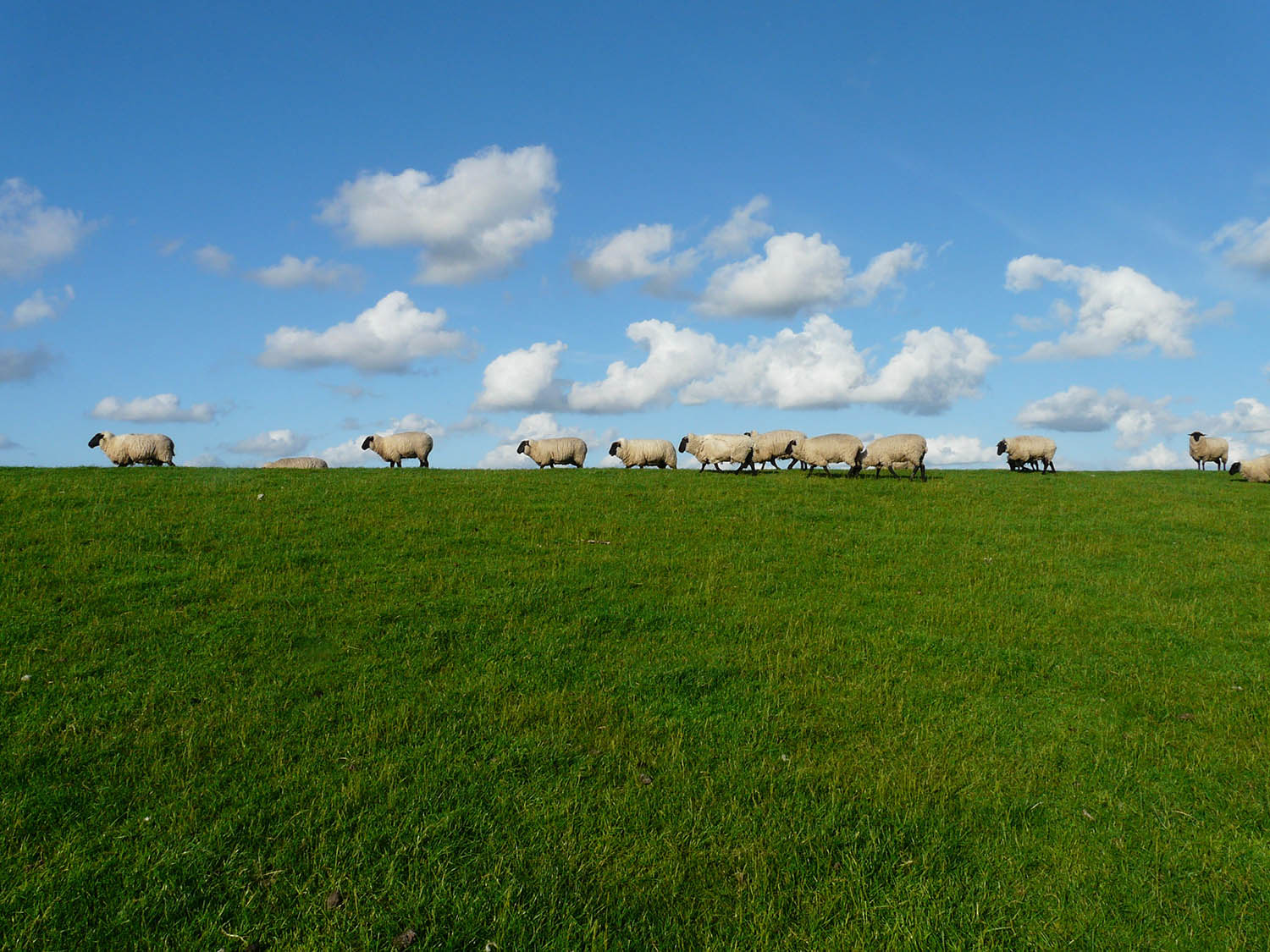Are We Ready To Be Sheep?
“The Lord is my shepherd, I lack nothing.
He makes me lie down in green pastures,
he leads me beside quiet waters, he refreshes my soul.
He guides me along the right paths for his name’s sake.
Even though I walk through the darkest valley,
I will fear no evil, for you are with me;
your rod and your staff, they comfort me.
You prepare a table before me in the presence of my enemies.
You anoint my head with oil; my cup overflows.
Surely your goodness and love will follow me all the days of my life,
and I will dwell in the house of the Lord forever.”
- Psalm 23 (NIV)
This famous Psalm gives us an inside look into the life of David and his relationship with God. 1st & 2nd Samuel tell the story of David's life as the second king of Israel. David was the youngest in a family of 8 boys, and they were all shocked when God chose him to be king. He was small, weak, and, oh ya, a shepherd. What did he know about being a king? Probably nothing.
But he did know sheep. He knew how to care for them, and he understood that his sheep were dependent on him. They needed their shepherd to lead them to good pastures and water, and most importantly, to protect them against predators. Sheep are defenceless, without sharp teeth, claws, or armour. They rely on their shepherd. They know him, and he knows them.
David went on to become a heroic king and warrior. However, even with all of David's experience as a great leader, he chose to describe God as a shepherd in this Psalm.
“The Lord is my shepherd,” writes David. Not just a shepherd, but my shepherd. David is not possessive of God as if God belongs to him, but the nature of the relationship between the sheep and the shepherd is a personal one. David sees God as his provider and protector. God is the one who will care for David and lead him to the places where there is goodness and nourishment. And when things become dangerous, it’s God who will defend. God not only protects, but in the midst of the enemy camp, He provides. Furthermore, the invitation to be in the presence of God extends hope to become assured reality.
As jealous as we may be of the kind of relationship David had with God, we can know that it’s not an exclusive offer. As followers of Jesus, we can take this Psalm to heart. We too, in our relationship with God can come to know Him like David did. Not only because David said so, but because Jesus said so. In John 10:11, Jesus said “I am the good shepherd.”
Jesus himself invites us to see Him as our shepherd. Not only is He our shepherd, but He is the good shepherd. We are invited to know Him and to be known by Him. He invites us into a personal relationship in which we have no other desire than to put our whole dependence and trust in Him.
But it goes even deeper than that. After He calls Himself the good shepherd, Jesus says that “The good shepherd lays down his life for the sheep.” What an absurd idea! What shepherd, farmer, or rancher would willingly die so that their animals could live? That just doesn’t happen. And so Jesus, as Shepherd, goes further than any shepherding role and offers His life for the sake of His sheep.
The question that we are left with is whether or not we too have experienced Jesus as a shepherd. Have we experienced Him as a provider, protector, Lord, and friend? Have we said “yes” to His invitation to take on His life and to become totally dependent on Him? Can we, like David say “I lack nothing,” because Jesus is simply enough?
Perhaps this probes the question - Can Jesus really do this for us?
That is an identity question. It’s a question that asks whether or not Jesus really is who He claims to be? Can He really be the good shepherd? Can He really take on the kind of responsibility that being a shepherd for humanity entails? That question of whether or not Jesus’ claims are true can only be answered by those who have experienced Him.
And therein lies humanity’s greatest problem. Even with the offer of the Good Shepherd, most of us aren’t ready to become sheep. We are lords of our own lives. We aren’t ready or willing to give up control. We aren’t ready to allow someone else to lead us, even if it’s to greener pastures. We aren’t ready to stop defending ourselves. We aren’t ready to find security in places other that what our culture offers us.
As so we are faced with a completely counter-cultural question that doesn't question Jesus’ identity, but rather questions our willingness to follow and trust in God. As much as anyone can try to convince you or prove that the Good Shepherd does exist, you will never know until you take on your identity as one of His sheep.
What the Good Shepherd offers is a relationship in which we no longer need to have it all together. We no longer need to rely on ourselves. Jesus offers us not only new life, but His life. He promises to never let us go, to give us all we need, and to protect us against evil. He takes the load and burden of life onto Himself and asks us to trust in Him instead. He invites us to find our identity and security in Him.
So what are you waiting for?
